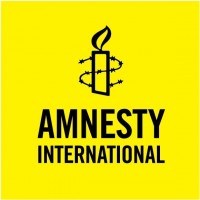
29 Oct Macedonia: Authorities must fully investigate attack on LGBTI Centre
Amnesty International calls on the Macedonian authorities to open a thorough, impartial and effective investigation into last week’s attack on a party held by Skopje’s lesbian, gay, transgender, and intersex (LGBTI) Centre and their supporters.
On 23 October, around 30 young people/men surrounded a coffee bar in Skopje, where more than 60 members of the LGBTI Support Centre and the Helsinki Committee for Human Rights were celebrating the second anniversary of the centre’s opening. Wearing hooded clothing and armed with glass bottles and other weapons, the perpetrators stoned the coffee bar and then vanished.
Two people standing outside the bar were attacked with bottles and sustained injuries on their heads and bodies. Their assailants repeatedly told them to leave as “faggots are not welcome”. Several people inside the bar were cut by flying glass.
This is the sixth attack on the LGBTI Support Center, or its activities, since its opening in October 2012; the building itself has been stoned, and subject to attempted arson. Five of the attacks remain unresolved; only the attack in March 2013 – which took place during a large multi-ethnic protest – has been investigated.
Amnesty International urges the police and State Prosecutor to carry out a prompt, impartial and effective investigation into the attack. The investigation should aim to uncover any alleged homophobic and transphobic motive associated with the attack.
The organization regrets that the Ministry of Interior, in its public report on the incident, has failed to recognise the organized nature and alleged discriminatory motivation for the attack on the LGBTI Support Center’s celebration, merely recording the attack as violence by unknown perpetrators.
Amnesty International urges that this, and other attacks on LGBTI individuals and organizations, should be investigated as a hate crime, under provisions for the crime of “Racial and other discrimination”. Police and prosecutors should investigate the reasonable suspicion that the attack was motivated by discrimination, based on sexual orientation and gender identity. The prosecutors should include any alleged discriminatory motives associated with the attack in any charges and indictments issued against suspects, and in all other relevant legal proceedings. If such a motive is identified, the judiciary should also take into account Article 39 (5), which provides that a discriminatory motive should be reflected in the sentencing of crimes committed against persons on the basis of their identity.
Amnesty International also urges the authorities to investigate verbal threats made on social media against the LGBTI Support Centre.
Source: Amnesty international

